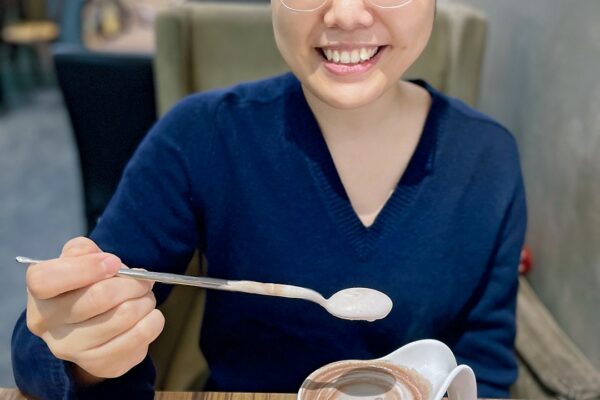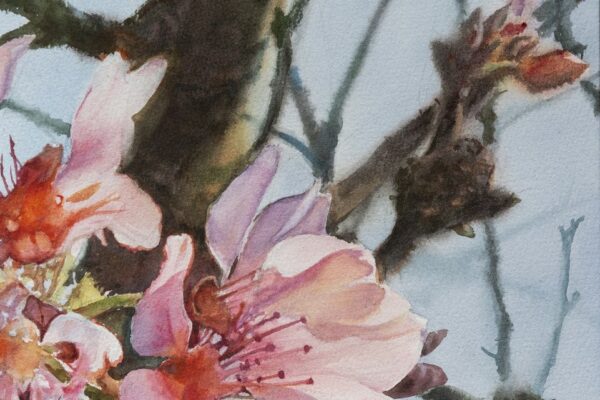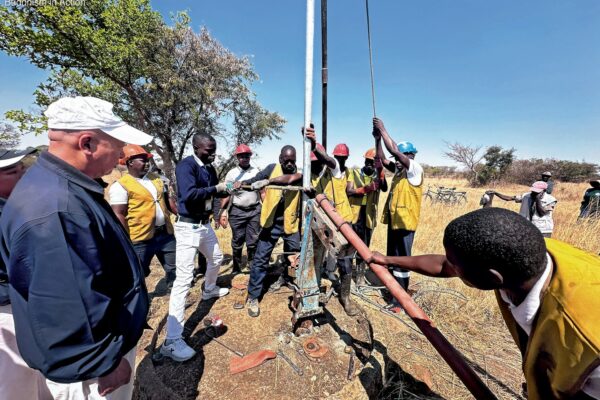By Teoh Bee Ling
Edited and translated by Wu Hsiao-ting
With a sparkle in his eyes and a warm smile on his face, Sai Sai said quietly to me after receiving a gift from us: “Happy!”
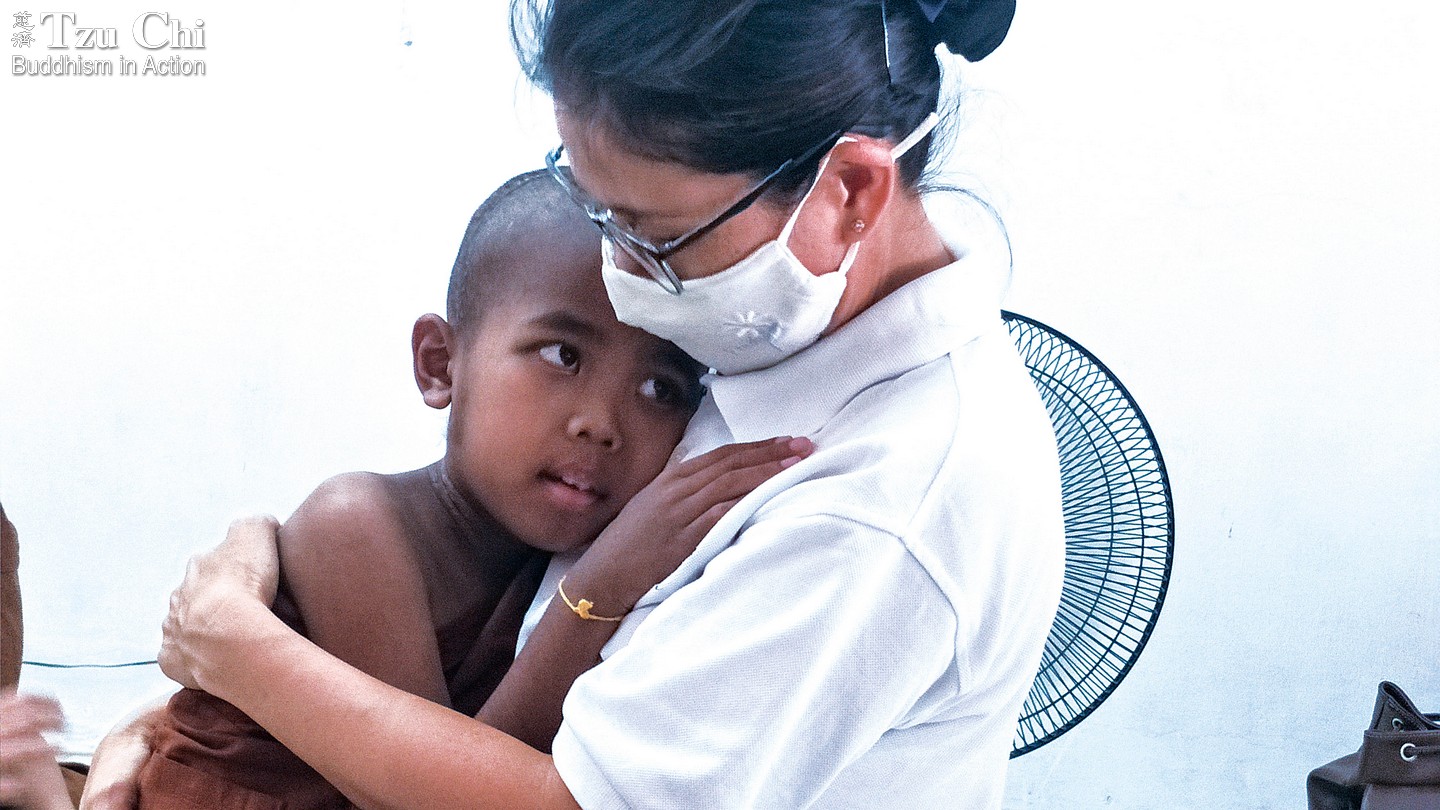
Sai Sai in the arms of the author, Teoh Bee Ling Cecelia G. C. Ong
In early 2020, Dr. Tang Kiat Beng, a fellow volunteer from the Tzu Chi International Medical Association (TIMA), phoned me and asked me to go with him to Penang General Hospital to visit a refugee boy named Sai Sai. The Tzu Chi Kuala Lumpur and Selangor branch and the United Nations High Commissioner for Refugees (UNHCR) had signed a memorandum of understanding to work together to help refugees in the nation, so Tzu Chi volunteers had been visiting and offering whatever assistance was needed to refugees across Malaysia. I read some information about Sai Sai before visiting him at the hospital, and learned that his family was preparing to be interviewed for immigration to Canada. I thought this visit would be a one-off event.
Sai Sai looked bloated when we met him at the hospital. It was the result of kidney failure: failing kidneys don’t remove extra fluid, which causes swelling in the face and other parts of the body. I knew the venous catheter his doctor had installed in his neck for dialysis must have been causing him a lot of discomfort, but the boy greeted us cheerfully, with a beautiful smile on his face. He immediately captured my heart.
Sai Sai’s father, U Sai Tun, told us that Sai Sai had been hospitalized for treatment when he was just one year old. As a mother myself, I could fully empathize with the pain the boy’s parents must have been going through.
Though Sai Sai already had a central venous catheter installed when I met him, he wasn’t a good candidate to receive hemodialysis on a long-term basis due to vascular access problems. As a result, his doctors recommended switching to peritoneal dialysis instead.
After we got to know U Sai Tun better, we found him to be a very responsible, patient, and loving father. He never made negative remarks or complained about anything. He believed in the karmic law of cause and effect, that everything happened for a reason. From him I learned how to face difficulties, suffering, and illness with an open mind. A positive mindset like that prevents one from getting trapped in negative thinking and helps one learn and grow through difficulties.
The Malaysian government initiated the Movement Control Order in March 2020 to rein in the spread of the coronavirus pandemic. As a result of the order, we couldn’t go to the hospital to visit Sai Sai. Even so, we kept in touch with the family via phone calls, establishing very friendly relations with the family and winning their trust. I became the first person U Sai Tun called whenever Sai Sai was hospitalized.
Even though faced with difficult circumstances, U Sai Tun and Sai Sai remained upbeat and optimistic. The positive energy they exuded made them popular at the hospital and allowed them to form great bonds with medical workers there.
I saw courage, resilience, and gratitude for his parents in Sai Sai’s eyes. He is an obedient, well-mannered child who respects his elders. I never heard him complain or throw a tantrum despite his treatments. What an endearing, winning child he is!
Sai Sai experienced a lot of health problems in the second half of 2020. At one point, his peritoneal dialysis catheter became dislocated, requiring him to switch back to hemodialysis using a central venous catheter. All this meant Sai Sai had to suffer more pain than normal, and it required multiple surgeries to fix the dislocation problem.
One day I received a phone call from a UNHCR physician telling me that Sai Sai’s condition had deteriorated to such an extent that he could no longer receive hemodialysis. He couldn’t go back to peritoneal dialysis either because the multiple surgeries had resulted in abdominal adhesions. He and Sai Sai’s doctor both agreed that switching the boy to palliative care would be best.
U Sai Tun told us Sai Sai wanted to donate to a nursing home. We knew what the family’s financial situation was like, so we decided to help out. We arranged a trip to a nursing home and made Sai Sai’s wish come true. We also accompanied him to a shopping mall, a memorable trip full of joy and laughter. A warm smile lit up his face, and his eyes twinkled. In response to the small gift we gave him during the trip, he said quietly to me in my arms: “Happy!”
Sai Sai has taught us how to cope with illness with ease. We’ve also learned from him the spirit of kindness and how one should never delay in doing good. He accepts what has happened to him with a broad mind and a tranquility borne from the influence of Buddhism. His wise father has likewise been able to accompany his child with peace through the last stage of his journey on Earth due to his strong religious faith. It’s a blessing getting to know the family.
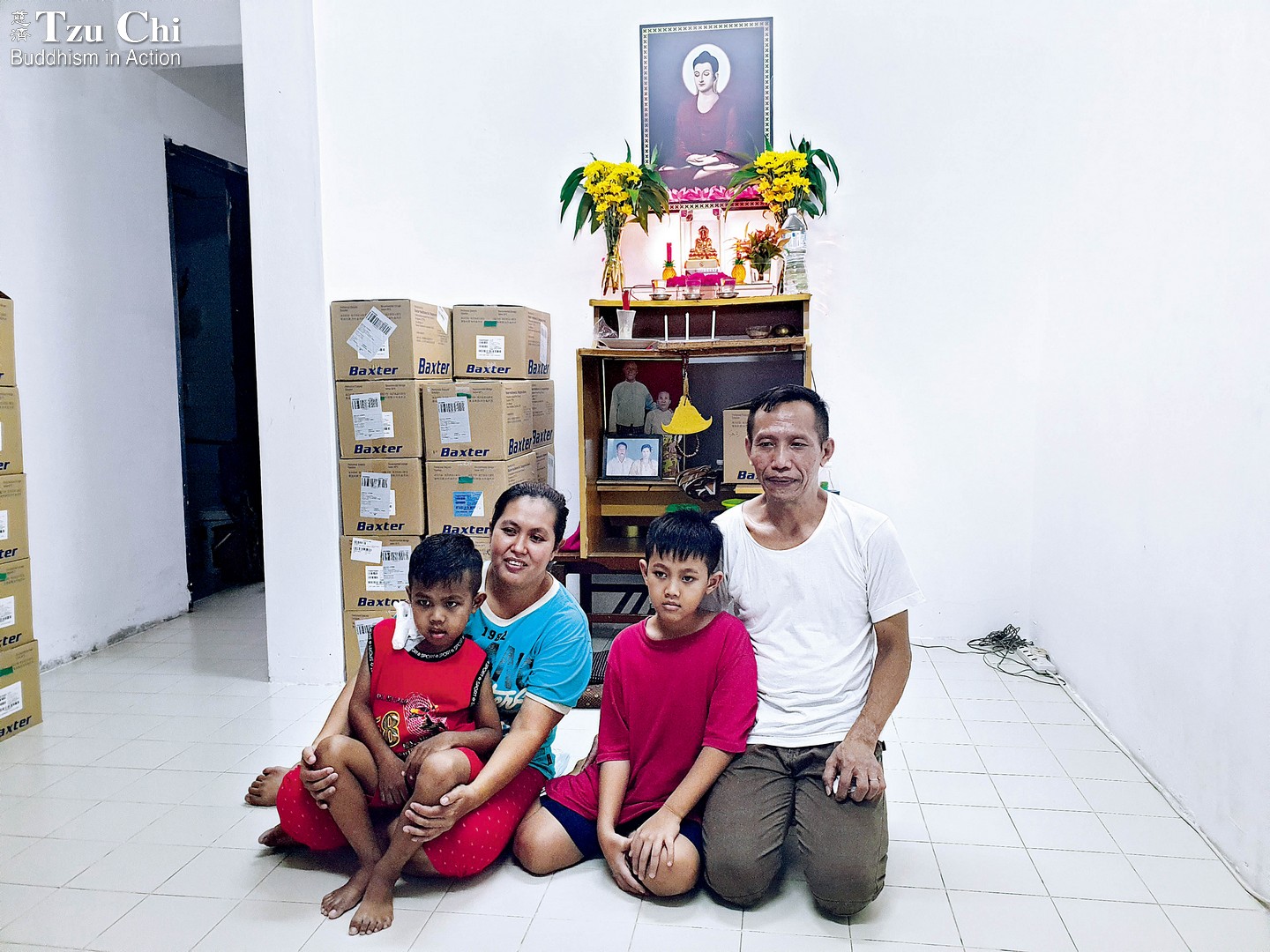
Sai Sai, his parents, and his older brother in the living room at their home. The family came to know Tzu Chi because of Sai Sai’s illness. The neatly lined up boxes next to the Buddhist altar contain dialysis solution for Sai Sai’s kidney condition, courtesy of the United Nations High Commissioner for Refugees. Tang Kiat Beng

